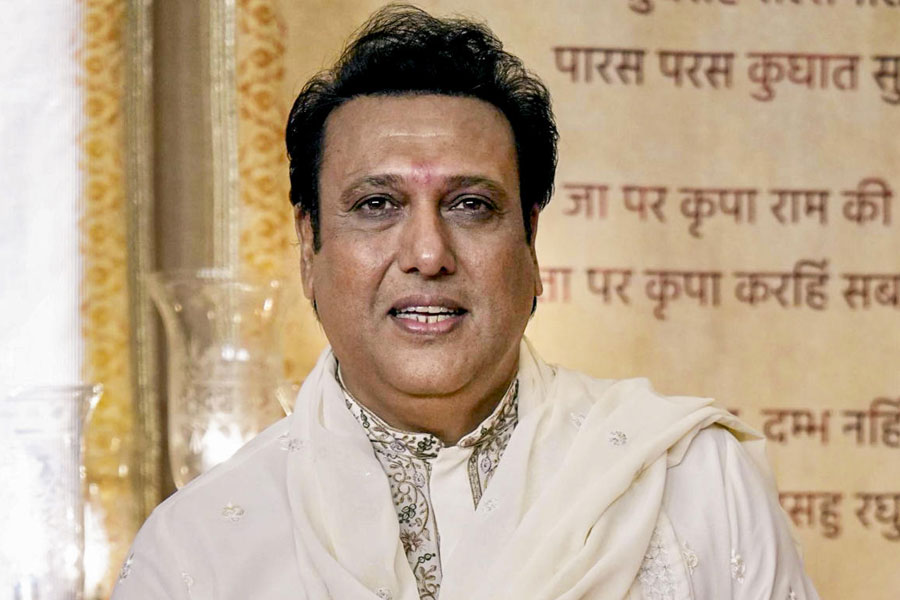Wrong approach
Sir — Employees feeling burnt out is a reality no company can ignore. This is why many businesses have employee assistance programmes to provide free counselling to workers. While EAPs are ostensibly for the well-being of employees, when corporates enter into partnerships with mental health companies, they are the client — not the person availing the counselling. There is, therefore, an inherent conflict of interest at play: is this welfare measure a concealed endeavour to enhance workers’ productivity? Moreover, this is an individualistic approach, and it does not get to the root of why workers are unhappy at work to begin with. The structural problems with the work culture thus remain unaddressed.
Riyah Pansari, Mumbai
Think again
Sir — The High Court of Punjab and Haryana has ruled that a Muslim girl over 15 years of age is free to marry a person of her choice. This verdict was given while hearing a habeas corpus petition filed by a 26-yearold man against the forced detention of his 16-year-old wife by her family. On the other hand, the Karnataka High Court has held that minor Muslim girls’ marriages are invalid under the Protection of Children from Sexual Offences Act, 2012, which overrides personal laws. It can be dangerous if the constitutional law is put aside for personal laws. The verdict of the High Court of Punjab and Haryana should be challenged by the National Commission for the Protection of Child Rights.
K.V. Seetharamaiah, Bengaluru
Needless trouble
Sir — The governor of Kerala is doing everything he can to remain in the good books of the Bharatiya Janata Party at the Centre (“Worsening war”, Oct 31). He hopes to be rewarded for meddling with governance in Kerala just as Jagdeep Dhankhar, the former governor of West Bengal, was for his stint. None can support what Arif Mohammed Khan is doing. He is demeaning the stature of his august office.
Ambar Mallick, Calcutta
Sir — Arif Mohammed Khan’s actions are disappointing. It is shameful that even 75 years after Independence, people holding high constitutional office are stepping out of their prescribed roles. The strife between the state governments and the governors is entirely avoidable. Be it Arif Mohammed Khan in Kerala, Banwarilal Purohit in Punjab, Bhagat Singh Koshyari in Maharashtra, and, formerly, Jagdeep Dhankhar in West Bengal, several governors have meddled with the functioning of the state government. This is unnecessary.
P.K. Sharma, Barnala, Punjab
Sharp contrast
Sir — The prime ministership of a temple-going and cow-worshipping “proud Hindu”, Rishi Sunak, who took his oath of office on the Bhagavat Gita, was greeted with jubilation by Hindutva outfits in India (“Anywhere man”, Oct 27). Sunak’s rise to the top post in the United Kingdom casts a harsh light on present-day India and Pakistan. In India, there is not a single Muslim minister in the Central government. Across the country, too, the ruling Bharatiya Janata Party has no Muslim members of the legislative assembly, even though Muslims make up about 14.2% of the country’s population. Pakistan, on the other hand, has barred its non-Muslim citizens from holding the highest offices. The contrasts are too pronounced to be missed.
Haridasan Rajan, Kozhikode
Restrictive policy
Sir — The renewed effort by the Centre to popularise Hindi by publishing medical texts in that language is dangerous. Madhya Pradesh has already introduced an MBBS course in Hindi. However, it is unclear whether medical graduates educated in Hindi will be recognised abroad. After years of labour, it is natural for MBBS students to nurture ambitions of getting foreign degrees. But being taught in Hindi might foil such plans. Incidentally, the people of West Bengal still remember the abolition of English at the primary level under the Left Front. This led an entire generation of students to suffer. The current government should take lessons from past experiments with linguistic policies and rectify their mistake now.
Kunal Kanti Konar, Calcutta
Stay safe
Sir — It is a matter of concern that several districts in Bengal have been affected by dengue (“Bengal dengue count worst in five years”, Oct 30). The weather this year has played sport for the Aedes aegypti mosquitoes, leading to their proliferation. What is worse, people are indifferent towards hygiene. Even with cases of dengue rising, scant attention is paid to cleaning up one’s surroundings.
Raghunath Pramanik, Howrah
Sir — Alarmingly, Calcutta is among the worst-hit cities when it comes to dengue in West Bengal. This is in spite of the best efforts of the civic authorities. Constant monitoring of dengue-prone areas by dedicated health and sanitary staff is the need of the hour. The government should play a more proactive role, not only in ensuring that the civic authorities are doing their job but also to make sure that people are made aware of the situation.
Arun Kumar Baksi, Calcutta
Winter is coming
Sir — The report, “Coldest October day in a decade” (Oct 30), proffered hope of an early winter this year. Winter has been late to arrive in Calcutta for the past few years. This is unfortunate because winter is one of the best times of the year in the city. Bengalis cannot wait to bring out their shawls, sweaters and monkey caps.
Rehan Sheikh, Calcutta











